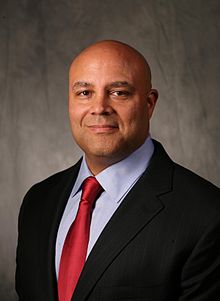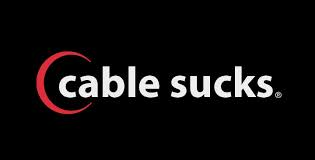
FiOS Have’s and Have-Nots
Despite complaints earlier this month from Boston Mayor Thomas Menino that Verizon’s latest ad for FiOS was filmed in Boston — a city that lacks the fiber optic service, not every Massachusetts community is so unlucky.
Stop the Cap! reader John C. wrote to alert us that the town of Raynham will get Verizon FiOS service despite Verizon’s long-standing intention not to further expand the fiber service outside of areas already committed.
It turns out Verizon’s partial buildout of fiber optics in the area was reason enough for Verizon to complete wiring Raynham with fiber and seek a formal franchise agreement from the town’s board of selectman. Phil Santoro, a Verizon spokesman, noted the company did the same thing a year earlier in Medford.
Raynham residents will be able to buy voice, data, and television service from Verizon, in direct competition with Comcast.
Verizon plans to offer residents FiOS TV service, FiOS Internet service and the FiOS Digital Voice unlimited calling plan starting at $89.99 a month, with a two-year contract.
Meanwhile, the city council of Quincy is desperately seeking cable television competition after hearing complaints from senior citizens they can no longer afford Comcast’s prices.
The city council has repeatedly reached out to Verizon in hopes the company will bring FiOS to town, but to no avail.
Comcast is in the seventh year of its 10-year franchise agreement in Quincy and is unlikely to change much when it requests a renewal.
City Solicitor James Timmins believes the reason Verizon isn’t interested is the fact “it costs the company about $1,500 to hook up each home.” Timmins also claimed “Verizon knows that in a few years FiOS (TV) is going to be obsolete.”
Ward 4 City Councilor Brian Palmucci suggested Verizon might be attracted to town if it received tax breaks on its telephone poles in return for FiOS, a plan that Timmins suggested would also attract Comcast… to demand the same deal, cutting the cable company’s costs without necessarily reducing rates.
Quincy residents, like others in Verizon territories, are frustrated with constant reminders about the fiber service they do not have because of Verizon’s blanket ads for FiOS.
“Donnie Wahlberg is telling me FiOS is awesome,” said Palmucci. “We can’t get it.”
“I think they should put in big letters in the ad, ‘We do not serve Boston. But we’re using Boston as a backdrop, because Boston is a great city,’” Mayor Menino told the Boston Globe.
A proposal to invite competition was sent to RCN, an urban cable overbuilder, Charter Cable and Time Warner Cable all which offer service in parts of the state.
It is unlikely any will show interest in competing with Comcast in Quincy.
[flv width=”640″ height=”380″]http://www.phillipdampier.com/video/Verizon Here is The Truth about FiOS in Massachusetts 10-2013.mp4[/flv]
This Verizon ad, featuring Donnie Wahlberg and filmed in Boston, pitches fiber service from a city that cannot get FiOS for any price. (1 minute)


 Subscribe
Subscribe



 Are you still waiting for that $100 gift card Comcast promised to customers who signed up or upgraded service with their marketing partner Verizon Wireless? If you’re feeling uneasy about the situation, consider
Are you still waiting for that $100 gift card Comcast promised to customers who signed up or upgraded service with their marketing partner Verizon Wireless? If you’re feeling uneasy about the situation, consider 